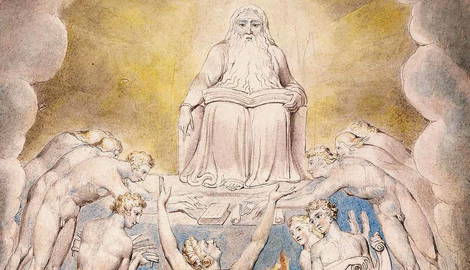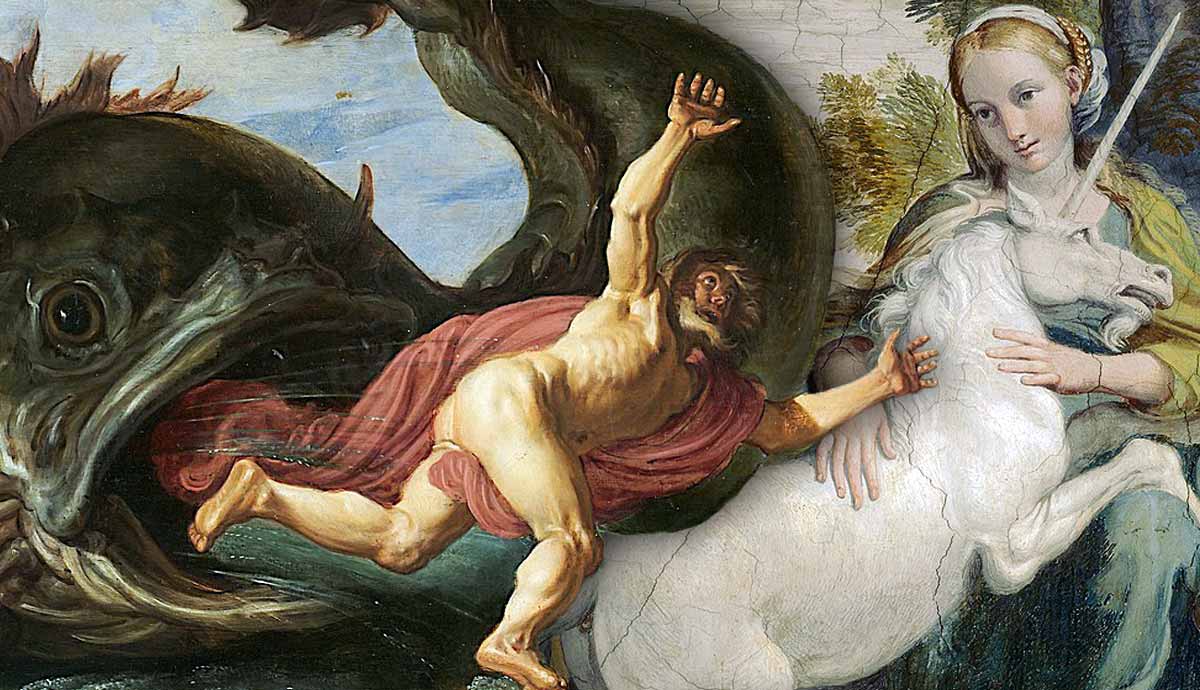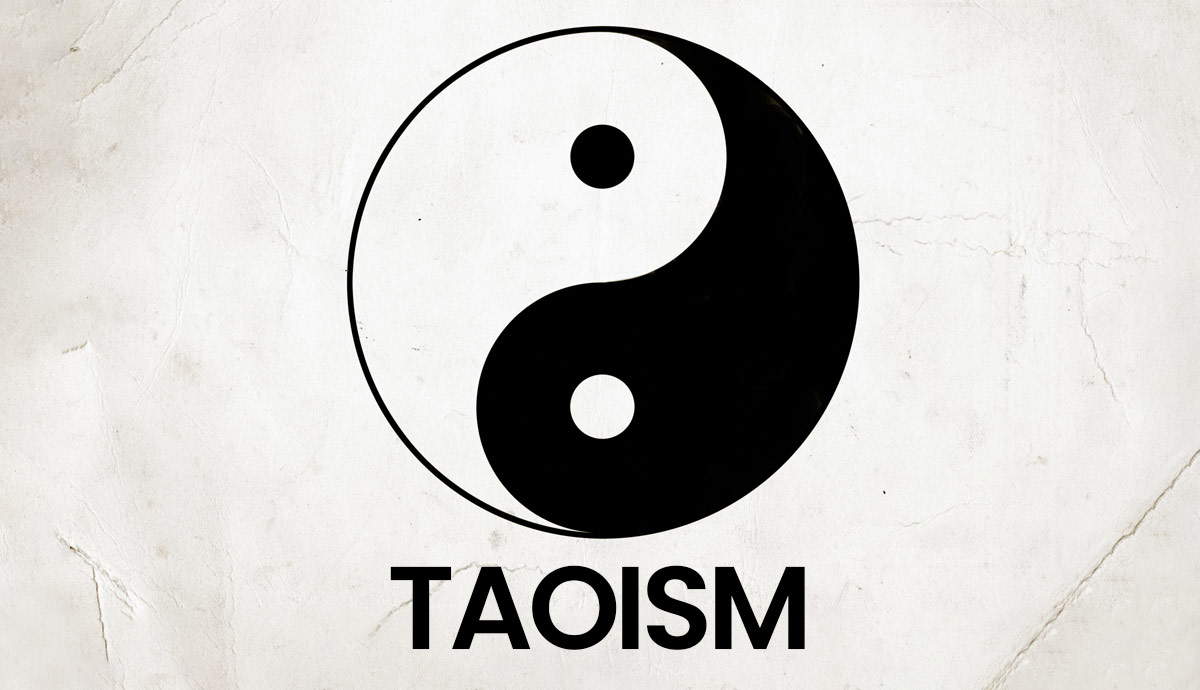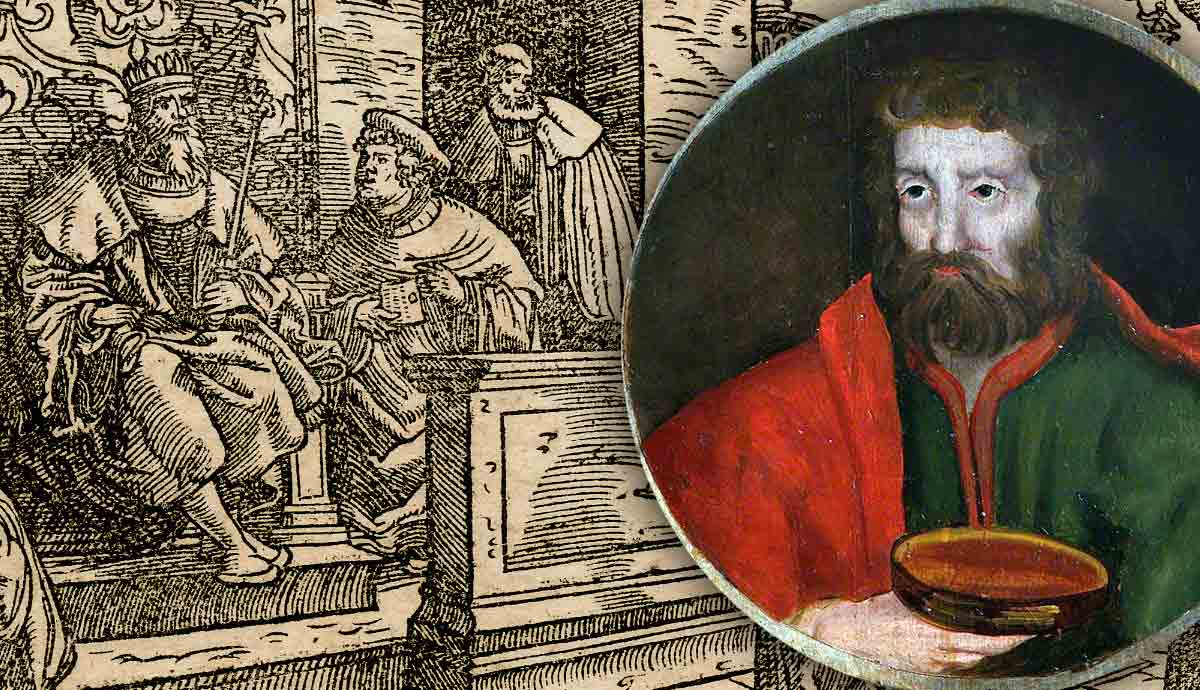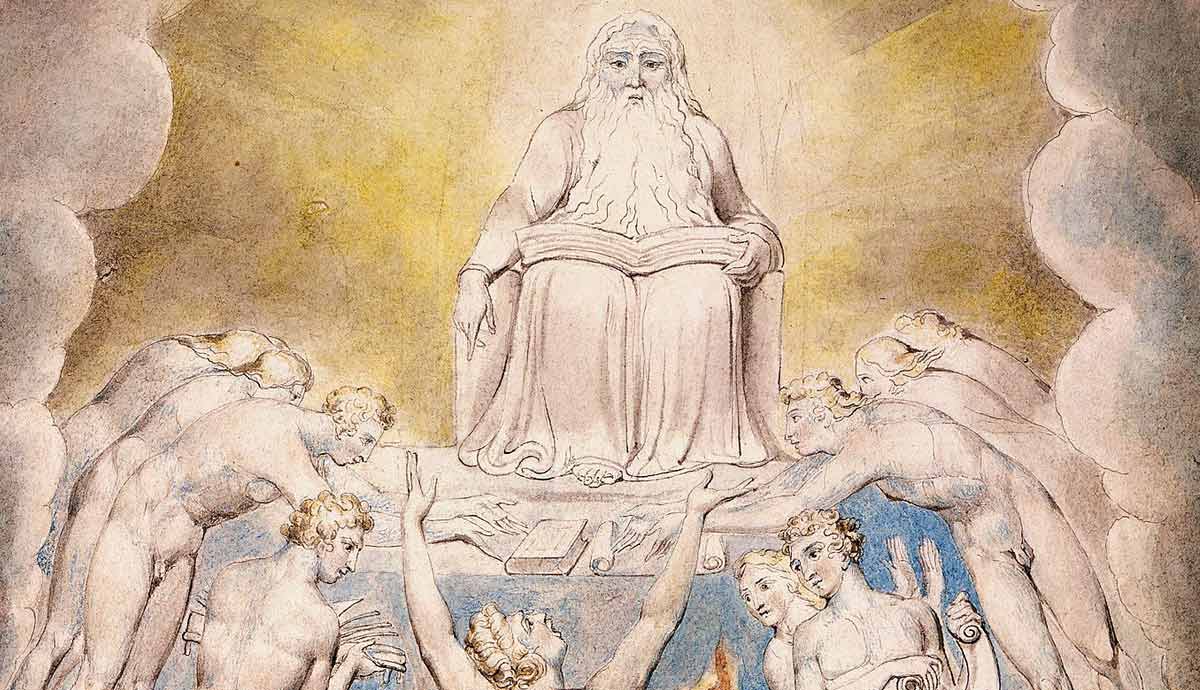
The Christian view of Heaven is often portrayed as a pleasant place good people go when they die. This article will look at Heaven in the context of eschatology—the doctrine of the end times for individuals and the universe. There are different meanings to the term “Heaven” depending on context. It can be located as God’s throne room and kingdom. Descriptions of Heaven employ the imagery of paradise and theocracy. Heavenly activities are positive but the philosophical objections are real.
Individual and Universal Eschatology
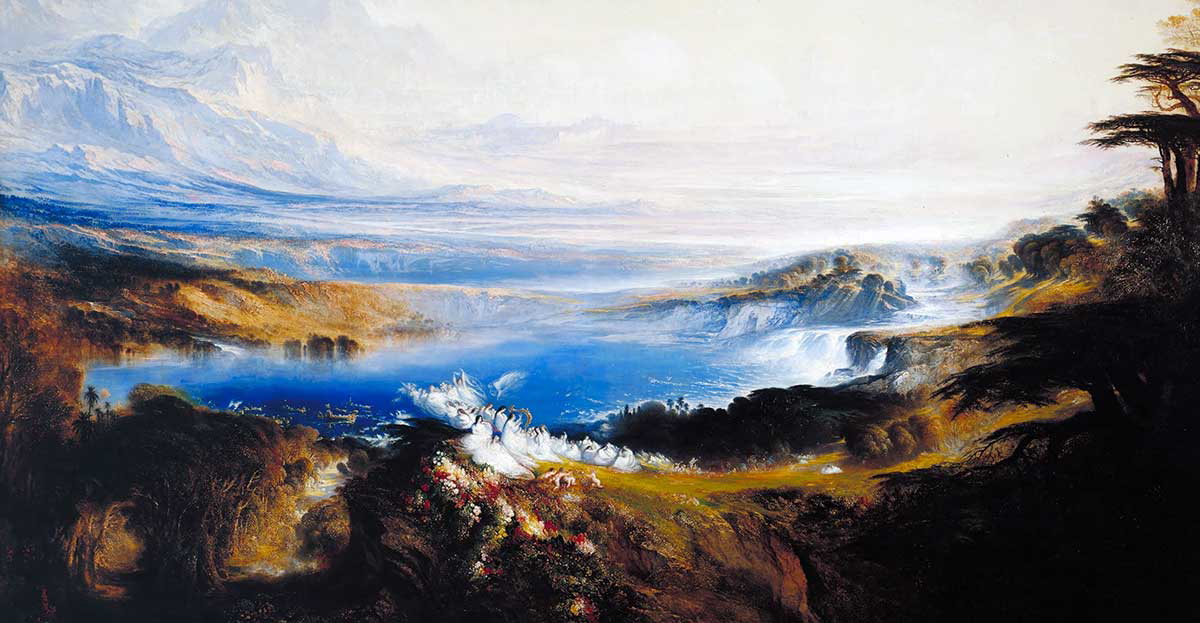
The Christian view of Heaven is part of a theological topic called eschatology—the doctrine of the last things. It involves the end times of both the world and the self. The end of the world for Christians covers big doctrines like the Second Coming or Return of Christ, the General Resurrection, the Last Judgement, and the New Heaven and Earth. This is called Universal Eschatology and includes discussions of the Apocalypse, the Rapture, the Antichrist, Armageddon, and the Millennium.
But there is a more personal side to eschatology. Individual eschatology focuses on what is in store for the single soul rather than world history and the entire cosmos. It covers topics like personal death, the intermediate state, the resurrection of the body, and the final state in Heaven or Hell. Purgatory and soul sleep are ideas for further discussion here. It is in individual eschatology that we look for an answer to the question of what will happen to us when we die.
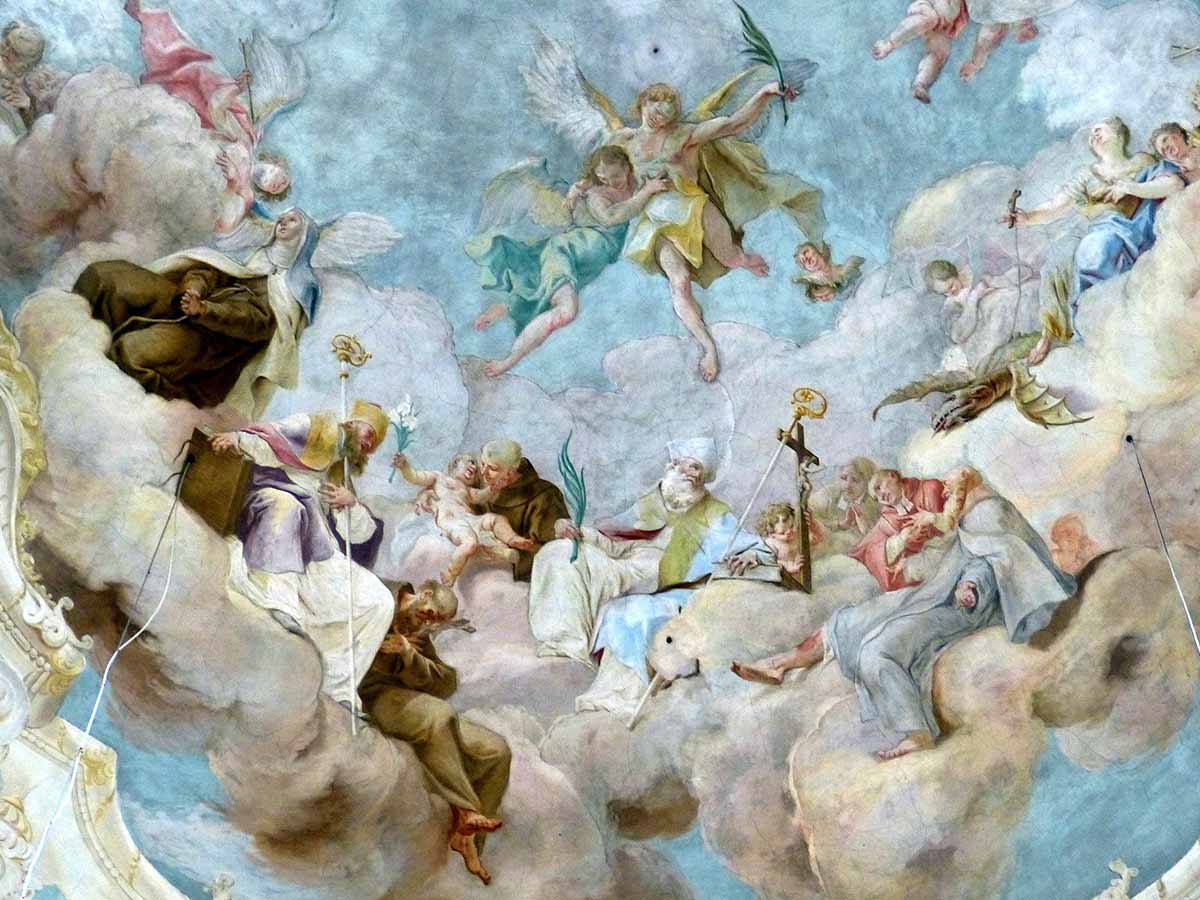
In order to properly understand the Christian view of Heaven, it is important to note that both parts of eschatology cover it—the universal as well as the individual. That means that Heaven isn’t only a place some souls go after death. Heaven is a state that is part of the future destiny of this world. Christians do not just believe they “go up” to heaven in spirit, they also “move toward” Heaven in history.
The Three-Layered Heavens
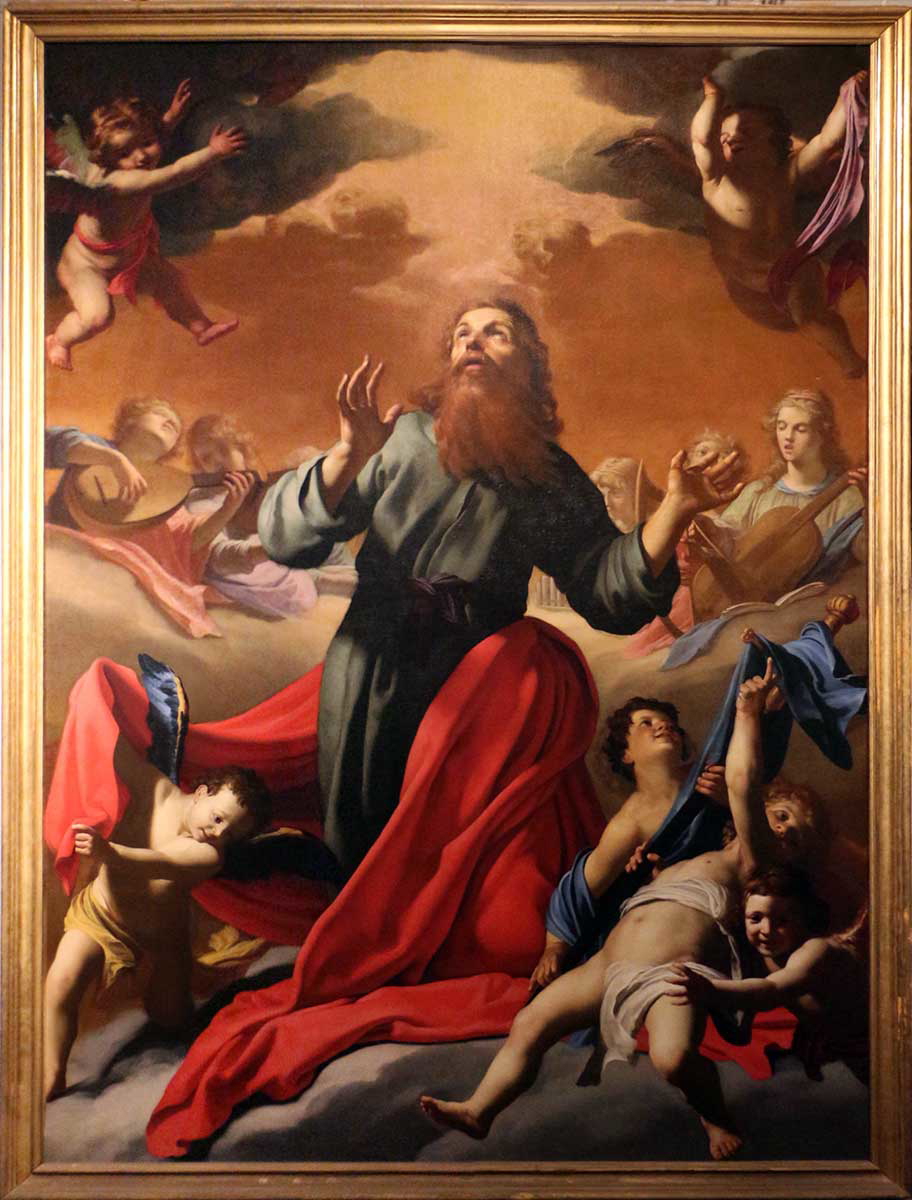
The very first reference to Heaven in the Bible is in the first verse of Genesis: “In the beginning, God created the heavens and the earth.” The Hebrew word for Heaven here is plural, unlike the word for Earth. This suggests from the start that there is more than one referent to the term. There are also phrases in the Bible like “the highest heavens” and “the heaven of heavens” which imply different levels and layers to Heaven.
The ancient Hebrews and early Church Fathers explained this heavenly diversity by postulating that there were three heavens. Saint Paul—a Jew trained in the theology and cosmology of the rabbinic traditions—talked about a time when he was taken up into “the third heaven” (2 Corinthians 12:2).
- The first heaven is the sky, the area where birds fly and clouds move. Today, we call it the atmosphere.
- The second heaven is the realm of the sun, moon, and stars, or what we now call outer space.
- The third heaven is the place where God and the angels dwell. It can be pictured both as a celestial location above us and an invisible realm around us. This is what most people think of when the word “Heaven” is used.
The Throne Room of God
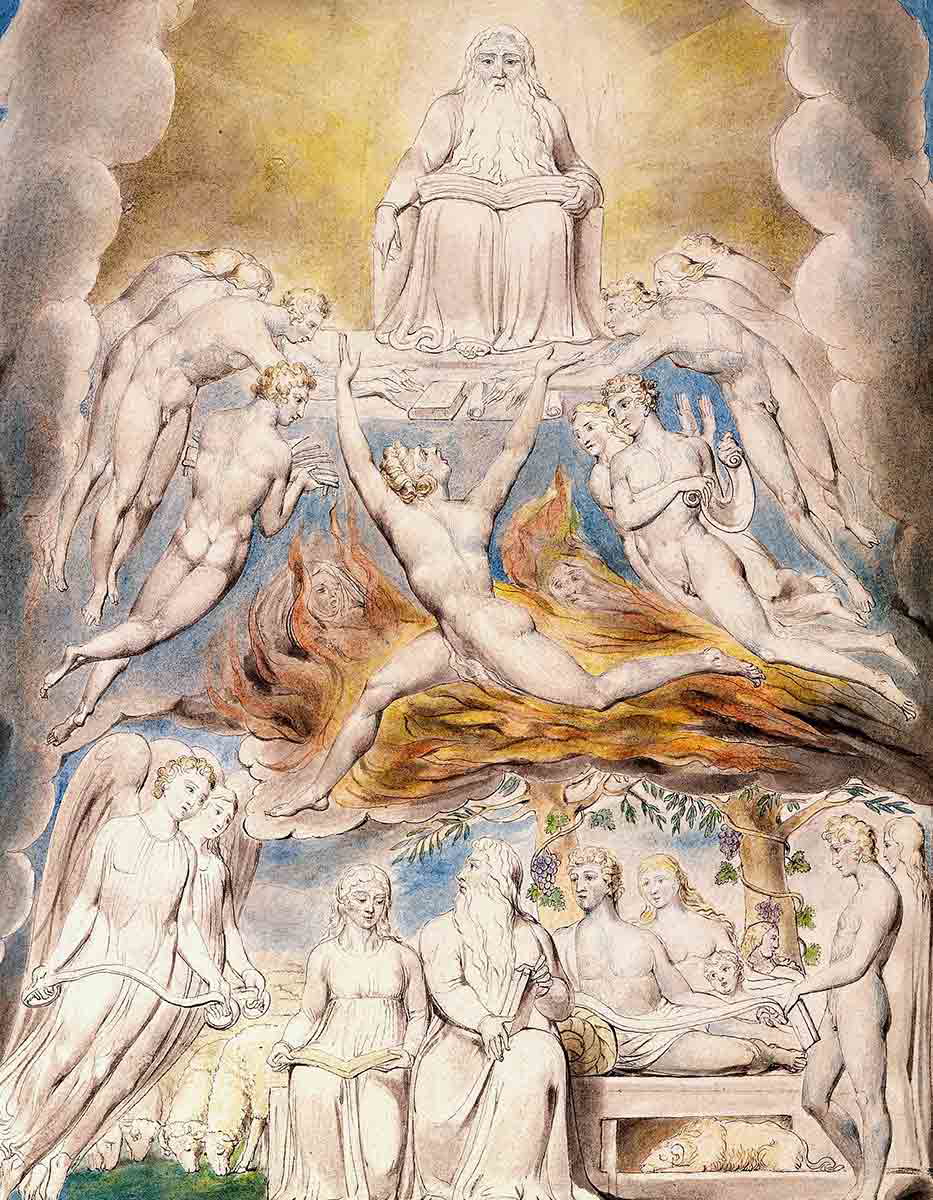
A good working definition for Heaven is that it is the place where God is and sin isn’t. Because sin is not there, Heaven doesn’t contain any of the consequences of sin: the curse, misery, and death. Heaven is a place of blessing, joy, and eternal life because these graces flow out from God himself. The problem with Heaven as the presence of God is that the Christian God is supposed to be omnipresent—present (or, at least, having an effect) at every time and place, all at once. Why, then, is everywhere not Heaven?
The answer is that the “third heaven” is a specific place where God reveals himself to mortal creatures like angels and humans. This is the focal point from which God rules the created order. There are two ways in which this reigning center is described by Christian theologians.
- The divine court – There are references in the Old Testament prophetic books to God in an exalted humanoid form sitting on a throne with angels and other beings in attendance (Isaiah 6; Ezekiel 1; Daniel 7; Zechariah 3). The New Testament draws on this material (Revelation 4).
- The divine council – In some of these portrayals of God, he is described as speaking to his entourage, asking them questions, granting permissions, and sending them on assignments (1 Kings 22 and Job 1-2). Unlike “divine assembly” depictions from Israel’s polytheistic neighbors, the Bible obscures the other members of the council, making it clear that God is superior to all others and is in fact “species unique.”
The Kingdom of Heaven
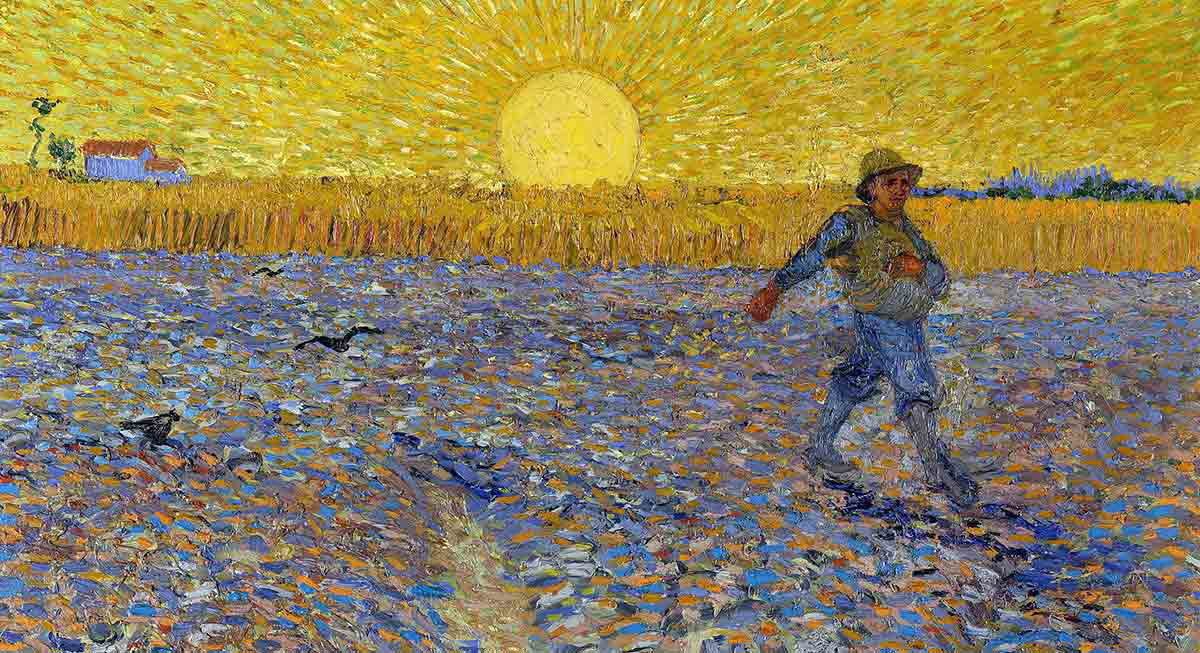
It is a distinct phrase in the Gospel of Mathew that calls God’s reign on earth begun by Christ “the Kingdom of Heaven.” Mark and Luke call it by the more straightforward name of the “Kingdom of God.” Both phrases refer to the same entity. It may be that Matthew, as the more Jewish writer, preferred not to use God’s name. Or, perhaps, Matthew intended to highlight something about the nature of Christ’s kingdom in his use of this expression.
The Kingdom of Heaven was one of the core teachings in the mission of Jesus—perhaps the most central message. It is contained twice in his pattern for prayer—the Lord’s Prayer “Your kingdom come… for yours is the kingdom…” The parables of Jesus in Matthew chapter 13—such as the Parable of the Sower—are called the Parables of the Kingdom. His preaching ushered in the kingdom, while his miracles were signs and proofs of the kingdom’s arrival. Christ’s vision of the kingdom clashed so violently with his religious and political contemporaries that they joined forces to have him killed.
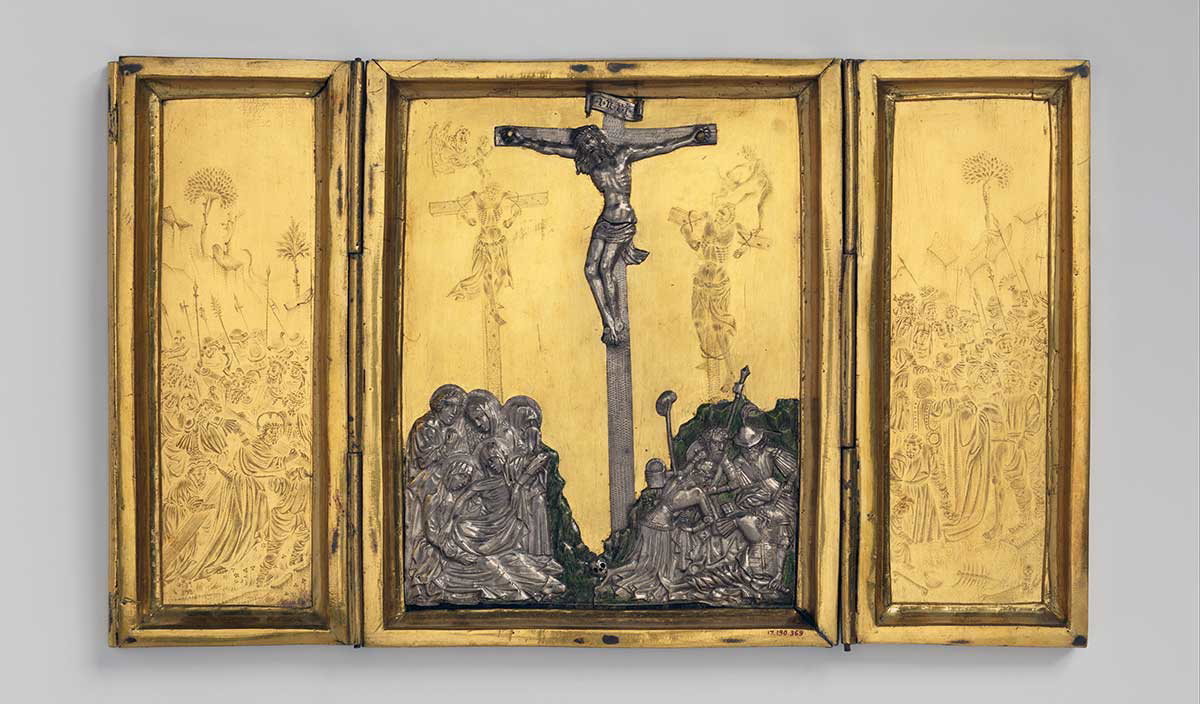
Viewing Heaven through the lens of the kingdom shows that the Christian view of Heaven is more than a place, without being less than one.
- Heaven is a process – The Kingdom of Heaven is a course of events that starts with Christ’s first coming and culminates at his return. That is why the Kingdom of Heaven is often described as both “already present” and “not yet” here at the same time, while growing in between the two points, along with opposition to it. What we usually call the place of heaven is in fact the final phase and stage of the coming of the Kingdom of God.
- Heaven is a state – The Kingdom of Heaven is both internal and external. It starts within us, then among us, and finally grows to include all things. Christians believe in trying to live a “heavenly” life here on Earth by imitating the moral virtues and experiencing the spiritual life of Jesus. This inward-to-outward movement cannot be bypassed or imposed by physical force.
Edenic and Solomonic Imagery
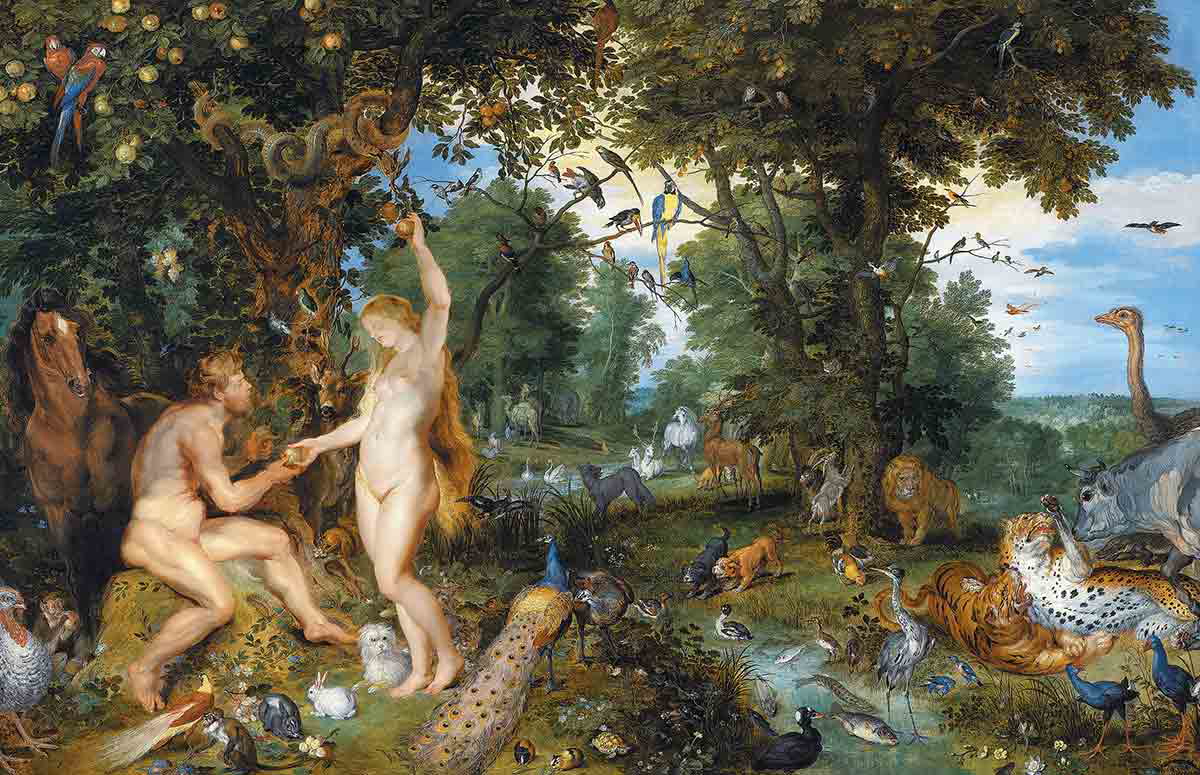
The nature of the Kingdom of Heaven is described by the prophets of the Old Testament and the preachers of the New Testament using two sets of images. The first set borrows from the paradisiacal state of humanity in Eden before humanity’s fall into sin. Heaven is viewed as a reversal of this fall and the curse that came with it. It is a place of elevation and blessing—Paradise restored.
Heaven is explicitly called “Paradise” in the New Testament in three key places:
- Jesus promised the dying thief he would join him in “today” Paradise after death (Luke 23:43)
- Paul equated the third heaven with Paradise (2 Corinthians 12:3-4)
- The tree of life that was in the Garden of Eden will be in the heavenly Paradise of God (Revelation 2:7)
The second set of images is taken from the period of theocracy during the reign of Solomon, David’s heir. This is the highest point in the history of ancient Israel. They had conquered the Promised Land, built the Temple in Jerusalem, and now enjoyed unprecedented peace and prosperity. The Messiah, as the royal Son of David, would raise this earthy state to heavenly and everlasting heights. Heaven is referred to as a holy city called the “New Jerusalem” and the “Heavenly Jerusalem.” In it, God dwells with his people directly, so there is no more need for a physical temple.
Heavenly Activities and Pleasures
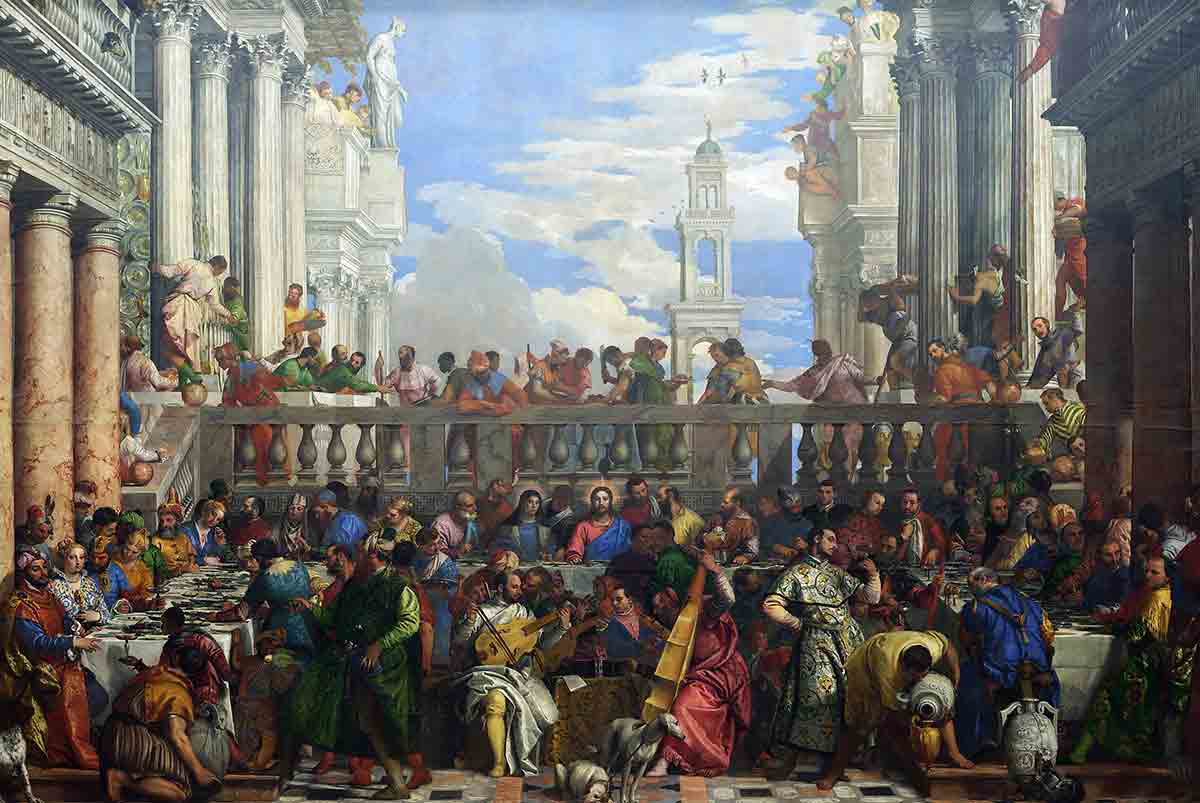
The activities of the inhabitants of Heaven are described in both negative and positive terms, although even negative examples are essentially positive. This negative side is captured in the biblical notion of Heaven as a place of ceasing and stopping, or, in other words, of rest. That is why Christians call Heaven an eternal sabbath or an everlasting state of rest. But rest from what?
- Suffering and sorrow
- Agitation or persecution of faith
- Separation from loved ones and God’s comforting presence
- Crying, hunger, pain, and sickness
- Labor and sweat to earn daily bread
- Ethical failures and the misery that flows from these
- The fear of death and death itself
“And God will wipe away every tear from their eyes; there shall be no more death, nor sorrow, nor crying. There shall be no more pain, for the former things have passed away.” (Revelation 21:4)
The positive side of Heaven is described in festive and celebratory terms. It is a place of making merry, with rich food and finely aged wines. There is singing and music, laughter, and joy. It is described in terms of a marriage feast, “the marriage of the Lamb.” Jesus told two parables that contain this idea: the Parable of the Wedding Feast and the Parable of the Great Banquet. This is the culmination of the Kingdom of Heaven, and the beginning of a new heaven and earth as foretold in the Book of Revelation.
“Then the angel said to me, ‘Write this: Blessed are those who are invited to the wedding supper of the Lamb!’… I saw the Holy City, the new Jerusalem, coming down out of heaven from God, prepared as a bride beautifully dressed for her husband.” (Revelation 19:9; 21:2)
The Philosophy of Heaven
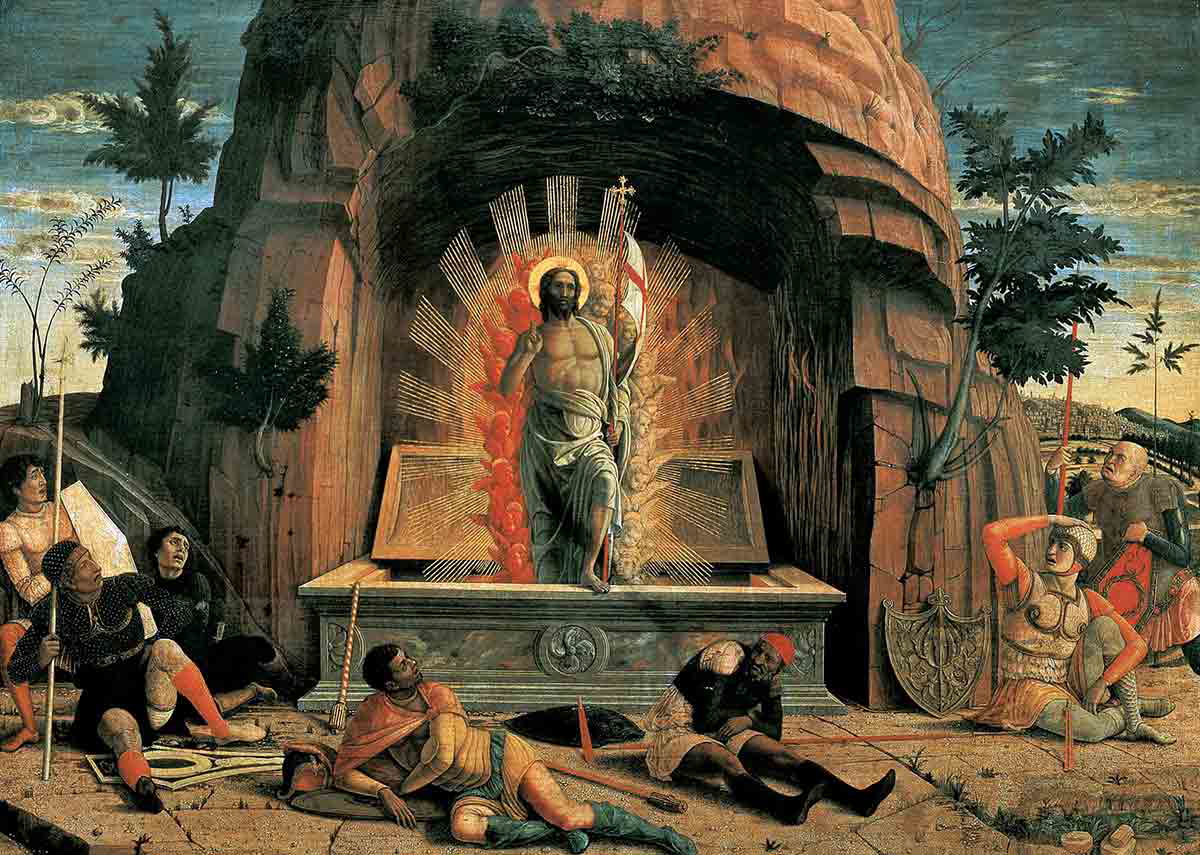
We could not end a discussion of the Christian view of Heaven without noting some of the debates about Heaven. There are many different viewpoints among Christians, and between different religions, when it comes to eschatology and the end for each human soul. However, philosophy has offered various criticisms of the concept of Heaven from a naturalistic worldview. These are valuable to any discussion of Heaven to aid theologians in clarifying and justifying their beliefs.
There are many philosophical problems with the Christian view of Heaven. Here are three.
- The problem of free will – How can human beings in Heaven exist as free agents if they are not able to choose to commit acts of sin there? An answer is that those in Heaven do not want to commit sins and are able not to commit them due to their renewed and resurrected natures.
- The problem of evil – If God is omnibenevolent (all good), how can he permit the eternal suffering of souls in Hell? Many Christians answer this objection with an appeal to free will. God gave those in Hell a free choice while on Earth and the destination of Hell is a consequence of their own moral decision-making.
- The problem of immortality – How can human existence continue in Heaven if there is no evidence of life after death or the immortal soul? It is important to point out that the Christian view of Heaven is of a body and soul united in the Resurrection, not an immortal soul made from some eternal substance (as in Platonism).
Some philosophers critique Heaven as a place where good deeds are rewarded by pleasure instead of performed out of duty. But, for many, that would seem to provide an argument for Heaven rather than against it!
